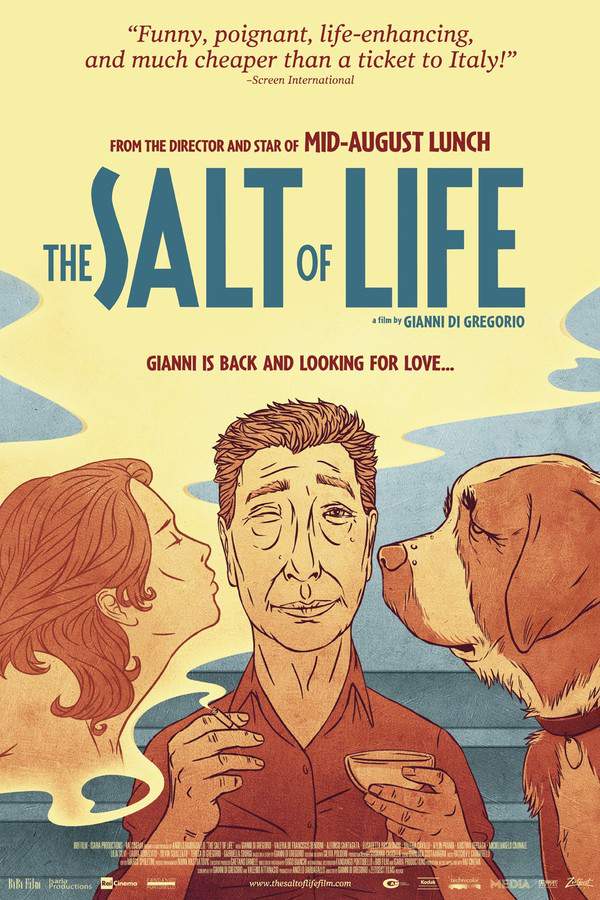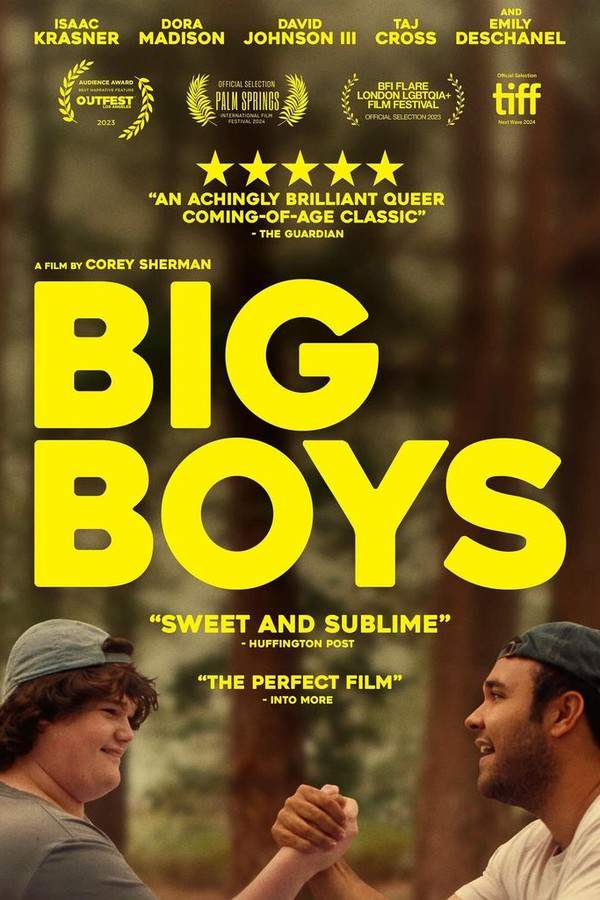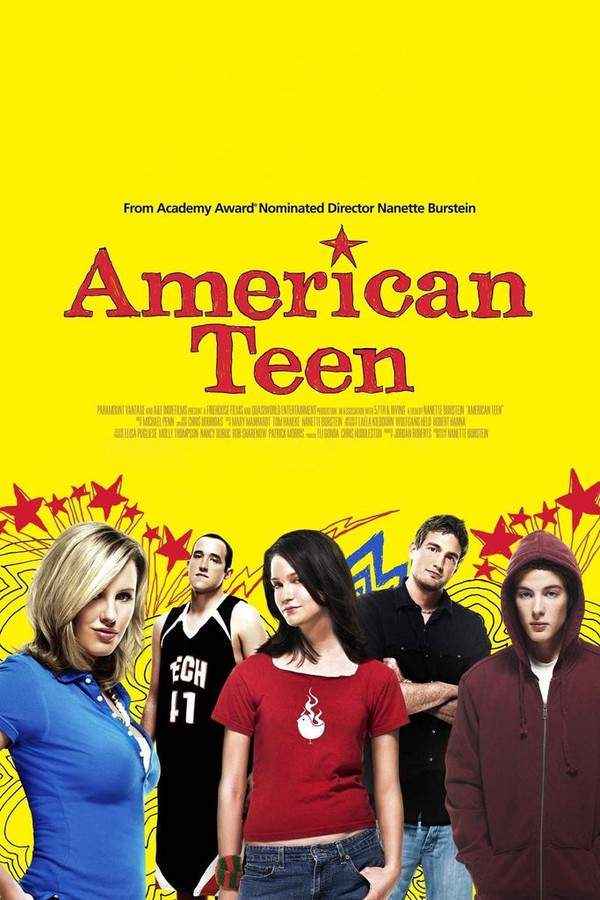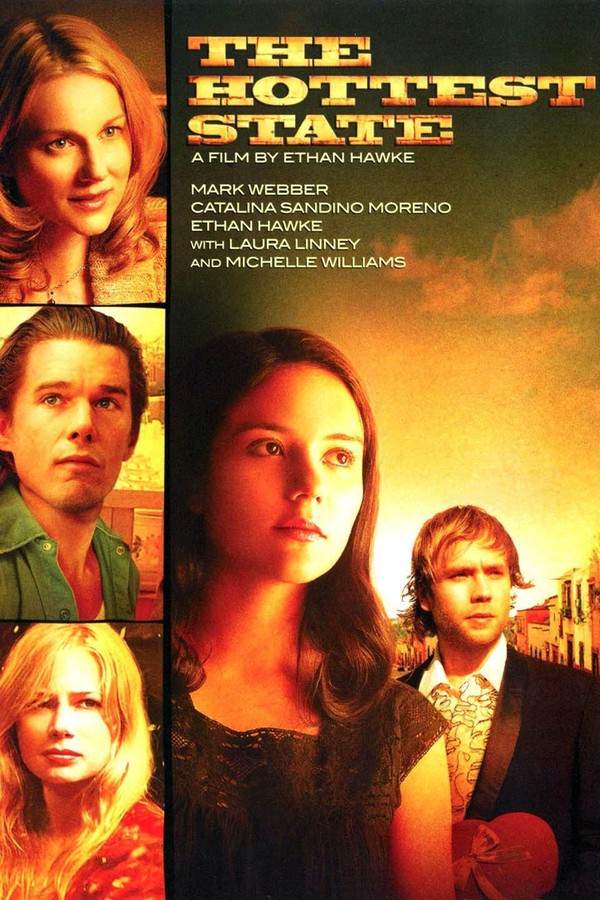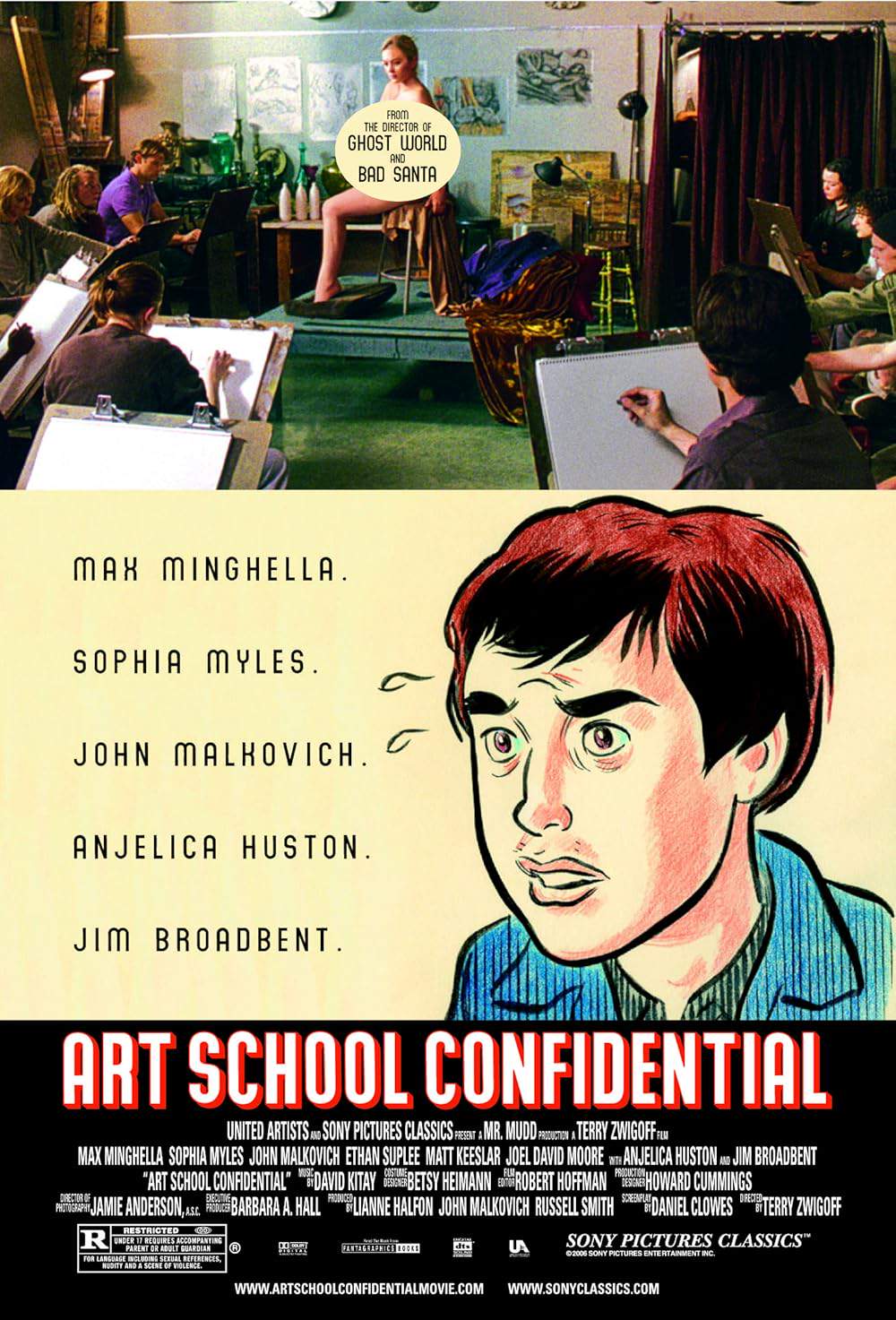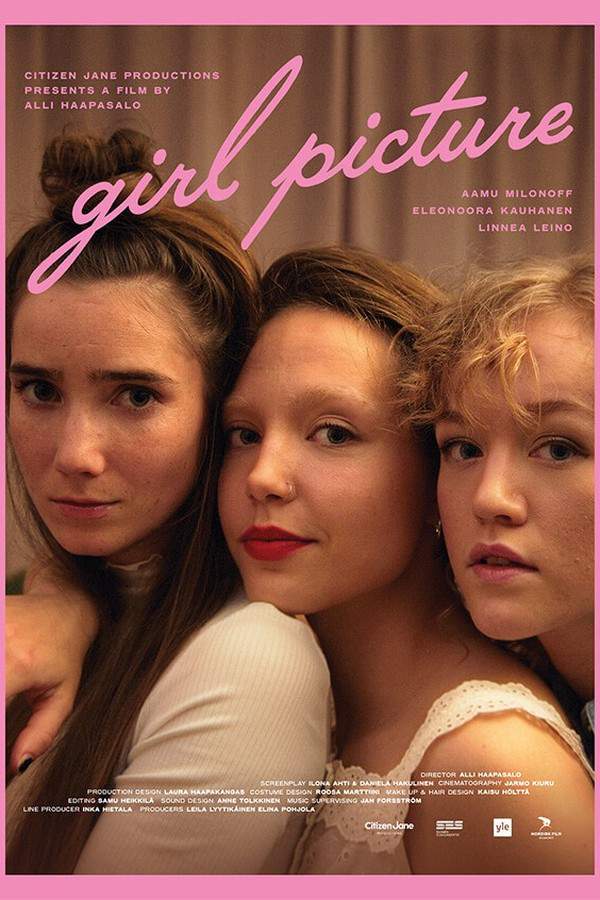
Show Me Love
Year: 1999
Runtime: 89 min
Language: Swedish
Director: Lukas Moodysson
In a close-knit Swedish community, rigid social structures dictate relationships until Elin, a popular young woman, unexpectedly connects with Agnes, a girl considered an outcast. A single kiss ignites a powerful attraction and awakens feelings neither expected. As Elin and Agnes explore their burgeoning romance, they must challenge the judgments of those around them and discover the courage to embrace their true selves, navigating the complexities of first love and self-discovery along the way.
Warning: spoilers below!
Haven’t seen Show Me Love yet? This summary contains major spoilers. Bookmark the page, watch the movie, and come back for the full breakdown. If you're ready, scroll on and relive the story!
Show Me Love (1999) – Full Plot Summary & Ending Explained
Read the complete plot breakdown of Show Me Love (1999), including all key story events, major twists, and the ending explained in detail. Discover what really happened—and what it all means.
In a quiet Swedish town, the story centers on two teenage girls who see the world through very different lenses. Agnes is reserved, withdrawn, and deeply troubled, carrying a weight of loneliness that makes everyday life feel heavy and hard to navigate. Elin, by contrast, is outgoing and socially fluent, yet she feels something essential is missing in her own life. The movie slowly builds the sense that their contrasting personalities might be a key to understanding each other’s unspoken desires and frustrations.
Agnes’s parents are worried about how little she opens up, and they try to offer comfort in a country town that feels limiting to a girl who longs for something beyond its borders. The family prepares a 16th birthday party for Agnes, even though she would rather keep things simple and private. The atmosphere around the home is tense yet well-meaning as they try to create a sense of celebration, even as Agnes fears she might be invisible to everyone present. The party becomes a focal point where the gap between Agnes’s inner life and the world around her is laid bare.
The arrival of Viktoria, a girl in a wheelchair, punctuates the evening with a moment of awkward cruelty. Agnes lashes out, telling Viktoria that their supposed friendship is only a consequence of loneliness on both sides. The emotional fallout is raw: Agnes loses control, sinks into tears, and cries into her pillow while her father remains supportive but overwhelmed by the intensity of her despair. The family shares the food prepared for the party, a small, uneasy reminder of how ordinary moments can feel strained under the weight of Agnes’s pain.
Elin shows up later at Agnes’s house less to celebrate than to avoid another social trap elsewhere. Her older sister Jessica tags along and dares her to kiss Agnes, tapping into the rumor that Agnes might be a lesbian. Elin obeys the dare, kisses Agnes, and then bolts, leaving behind a mix of guilt and curiosity. The moment exposes the fragility of their connection and hints at the possibility that Elin’s feelings may be more complicated than she’s willing to admit.
At a different party, Elin drinks too much and becomes ill. Johan, a boy who has been pursuing her, steps in with awkward concern and ends up declaring his love. The encounter pushes Elin to leave and later return to apologize for how she behaved earlier. In a crucial reversal, she helps Agnes when Agnes seems on the verge of self-harm, preventing a crisis and convincing her to come back with Elin to the other gathering. The night becomes a turning point as Elin opens up about feeling trapped in Åmål and asks Agnes about the possibility of leaving town for Stockholm. Their conversation becomes a bridge between fear and risk, between staying and breaking free.
On impulse, Elin convinces Agnes to hitchhike to Stockholm—a trek that seems almost cinematic in its audacity. A driver agrees to take them under the pretense that they are sisters visiting a grandmother, a ruse that underscores how far they’re willing to go to escape the life they know. In the back seat, the moment becomes intimate as they share their first real kiss. The driver, seeing what appears to be a reckless act between sisters, orders them out, a jarring reminder that the outside world is not always ready to receive what they’re discovering.
The realization of Elin’s growing attraction to Agnes becomes a source of fear and confusion. She hides her feelings, even from those close to her, and her sister Jessica helps push her to confront whom she’s truly drawn to. To shield herself from the risk of admitting love, Elin fabricates a relationship with Johan and loses her virginity in a brief, complicated encounter. The dynamic between truth and deception threads through this period, adding a layer of tension to an already fragile bond.
The truth finally surfaces in a dramatic moment at school, where the two must confront their relationship openly in front of their peers. Afterward, the emotional weight settles into a quieter, more intimate space. In the closing scene, Elin and Agnes sit in Elin’s bedroom, sharing chocolate milk, a small ritual that becomes a symbol of ordinary comfort in a world that has suddenly felt both brighter and more perilous. Elin explains a quirky, endearing habit of adding too much chocolate, implying that life—like the drink—can be rich and a little messy, but that doesn’t negate its sweetness. The film ends on this tender, everyday note, signaling a newly acknowledged connection that has transformed both girls.
Throughout, the story traverses themes of longing, identity, and the tension between a desire to stay and a longing to go somewhere bigger. It remains grounded in the fragility of adolescence, the courage it takes to reveal one’s true self, and the small, stubborn moments of kindness that can steer two people toward a future they hadn’t previously imagined. The result is a compassionate, nuanced portrait of youth, love, and the push-pull between staying in familiar places and daring to dream of something beyond them.
Last Updated: October 09, 2025 at 15:43
Explore Movie Threads
Discover curated groups of movies connected by mood, themes, and story style. Browse collections built around emotion, atmosphere, and narrative focus to easily find films that match what you feel like watching right now.
Hopeful LGBTQ+ Coming-of-Age Stories like Show Me Love
Intimate stories of self-discovery and first love against a backdrop of societal pressure.If you liked the tender yet raw portrayal of first love and self-discovery in Show Me Love, you'll find similar movies here. These films explore LGBTQ+ teenage experiences with a hopeful heart, navigating social pressures and forbidden romance to find moments of genuine connection and liberation.
Narrative Summary
The narrative follows a protagonist, often an outcast, as they experience a life-changing attraction that challenges their understanding of themselves and their place in the world. The central conflict is internal (self-acceptance) and external (societal/familial judgment), culminating in a climactic moment of truth that leads to a bittersweet but hopeful resolution centered on personal growth.
Why These Movies?
These films are grouped by their shared focus on the specific emotional cocktail of teenage LGBTQ+ awakening: the loneliness and anxiety of being different, combined with the exhilarating, tender hope of first love. They share a medium emotional weight, a steady, character-driven pace, and a ultimately hopeful tone that finds light even in difficult circumstances.
Movies about Teenage Angst and Small-Town Life like Show Me Love
Raw and anxious stories of youth yearning to break free from stifling communities.For viewers who appreciated the authentic depiction of teenage loneliness and social pressure in Show Me Love, this collection features similar films. These stories explore the raw, anxious vibe of growing up in a suffocating small town, where characters grapple with identity and dream of escape.
Narrative Summary
Stories typically center on a protagonist who feels profoundly alienated within their seemingly ordinary community. The plot is driven by their internal struggle and their attempts to connect or rebel, often leading to a confrontation with the social norms of the town. The narrative arc is about finding a sliver of hope or a means of escape, whether through a relationship, a personal revelation, or a defiant act.
Why These Movies?
These movies share a specific atmospheric vibe: the combination of an intimate, anxious mood with the thematic focus on small-town social structures and teenage angst. They often feature a steady pace that allows for deep character exploration and a medium emotional weight that takes the characters' struggles seriously without verging into utter despair.
Unlock the Full Story of Show Me Love
Don't stop at just watching — explore Show Me Love in full detail. From the complete plot summary and scene-by-scene timeline to character breakdowns, thematic analysis, and a deep dive into the ending — every page helps you truly understand what Show Me Love is all about. Plus, discover what's next after the movie.
Show Me Love Timeline
Track the full timeline of Show Me Love with every major event arranged chronologically. Perfect for decoding non-linear storytelling, flashbacks, or parallel narratives with a clear scene-by-scene breakdown.

Characters, Settings & Themes in Show Me Love
Discover the characters, locations, and core themes that shape Show Me Love. Get insights into symbolic elements, setting significance, and deeper narrative meaning — ideal for thematic analysis and movie breakdowns.

Show Me Love Spoiler-Free Summary
Get a quick, spoiler-free overview of Show Me Love that covers the main plot points and key details without revealing any major twists or spoilers. Perfect for those who want to know what to expect before diving in.

More About Show Me Love
Visit What's After the Movie to explore more about Show Me Love: box office results, cast and crew info, production details, post-credit scenes, and external links — all in one place for movie fans and researchers.

Similar Movies to Show Me Love
Discover movies like Show Me Love that share similar genres, themes, and storytelling elements. Whether you’re drawn to the atmosphere, character arcs, or plot structure, these curated recommendations will help you explore more films you’ll love.
Explore More About Movie Show Me Love
Show Me Love (1999) Scene-by-Scene Movie Timeline
Show Me Love (1999) Movie Characters, Themes & Settings
Show Me Love (1999) Spoiler-Free Summary & Key Flow
Movies Like Show Me Love – Similar Titles You’ll Enjoy
My Summer of Love (2005) Spoiler-Packed Plot Recap
Girl Picture (2022) Story Summary & Characters
It Felt Like Love (2014) Plot Summary & Ending Explained
Swedish Beauty (2000) Story Summary & Characters
Say That You Love Me (2006) Ending Explained & Film Insights
Show Me Your Love (2016) Full Summary & Key Details
Young Love (2001) Detailed Story Recap
Love Me! (1986) Full Movie Breakdown
Show Me Love (1000) Full Movie Breakdown
Love Me! (1986) Full Summary & Key Details
Swedish and Underage (1969) Plot Summary & Ending Explained
Love One Another (1922) Complete Plot Breakdown
A Swedish Love Story (1970) Plot Summary & Ending Explained
Only We Can Love Like This (1988) Film Overview & Timeline
Love Me (2008) Detailed Story Recap




